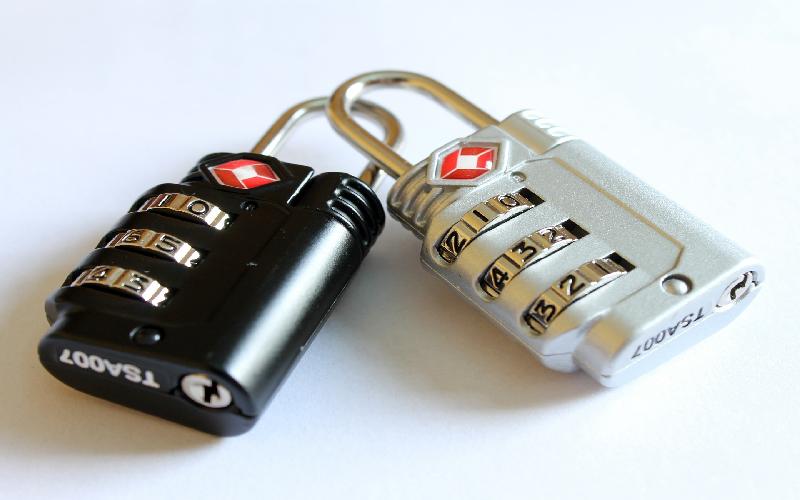Discover How To Ensure Your Safety While Enjoying Or Working On The Internet


There are some simple steps to ensure safety from a wide array of possible threats, on the world wide web.
Now-a-days 'Hacking' has been a biggest issue for internet geeks. Identified in different names such as 'Identity Theft', 'Viruses', 'Malware', 'Phishing' and the recent culprit called RansomWare, different kinds of hacking threats continue to emerge in the world-wide-web.
People take tremendous care about their bank accounts, but, neglect the safety of their online accounts. This ends up in serious problems.
Thus, Here given are 5 Key Points to stay secure while enjoying the internet.
1. Setting Up A Strong Password:
May it sound monotonous; but weird simple passwords are easy cakes for hackers.
A good password should contain both Uppercase and lowercase letters, numbers & special characters. Don't set any household name as password. Make it as a short & weird sentence that only you can remember.
eg.
hE@te-so!L
Never use the same password for multiple accounts which are linked to one another.
Using two-step verification for sensitive sites is advisable. It prevents hackers from getting into your account even if they have your password. You have to confirm your identity using a password as well as OTP (one time password) sent to your phone.
2. Check URL before Logging in:
Whenever you are about to input your Username and password, double-check the link shown in the address bar.
For example: If you're logging in to facebook, the URL must contain 'facebook.com' before the first slash. I.e it may be http://m.facebook.com or http://www.facebook.com/. If you see an unusual domain name, that's a phishing page !
A phishing page looks like original login page but it's designed to carry your login details to the hacker's database.
If some sort of an error page after a login, immediately change your password using another app / browser. That might be the case of DNS spoofing (although it will not be the case every time such a thing happens).
3. Always use encrypted connection:
Use HTTPS protocol instead of HTTP wherever possible. adding an 's' in the address bar is the key. For example: https://m.facebook.com/ is more secure than http://m.facebook.com/. That is called end-to-end encryption. (Gmail seems to be using it as default).
The above step is more advisable when you're on a public or shared network. Using HTTPS is able to prevent cookie hacking (session hijacking) attacks for a very good extent.
Apps such as Opera Max (available on Play Store) can help you to browse safe on shared WiFi networks.
(Some geeks even use SSL proxies and VPNs for this purpose. But their use isn't easy for a common man)
4. Use a strong Antivirus:
That's the simplest way of protecting your computer from malware and viruses. It may not cost that much to have an effective antivirus installed in your computer. Many are available free for personal use.
Scan your computer / smartphone every week with it. Frequently clear junk files and update the antivirus whenever updates are available.
On the other hand, 99% of the mobile antivirus apps are nothing more than TRASH. Thus, on your mobile phone, ensure that you download apps and other documents from trusted websites.
Whenever you are downloading files, ensure that you are downloading from a trusted site. These all are just some ways to keep your device free of malware.
Even PDF files and office documents can be affected with malware, beware !
5. Be aware of keyloggers and stealers :
'KeyLoggers' are software programs that steal sensitive data such as usernames and passwords by recording keystrokes.
It's advisable to use 'virtual keybord' if available. Whenever you log-in to a site, ensure that any keylog software isn't running in the background. If you must use someone else's computer, change password after use.
Many softwares installed from untrusted sources may have a keylog function. Thus, it's better to download files from official sites.
Another security threat is about 'Stealers'. Such pieces of code can steal passwords stored in browsers. It's always a good practice not to save passwords in browsers. If you rapidly forget passwords, You may consider to keep it in physical format - on a piece of paper which only you can access.
Conclusion:
Hope this is enough to stay secure from internet security threats.
Another word if you are concerned about the recent threat called RansomWare. Have all your important files backed up today in order to keep your head in inevitably critical conditions of RansomWare attack.
Happy browsing !
----------------------------------------------
All brand names, service marks and trademarks above are the properties of their
respective owners and are used here for demonstration purposes only.
We do not have any kind of affiliation with the owners of used trademarks and brand names.
----------------------------------------------
Is slow Internet connection spoiling your web or Youtube experience? Is it taking you ages to load a website or an app due to slow speed of your Internet? Well, here are the tips to fix this problem yourself at home. Just keep reading to know how to fix slow Internet connection problem yourself if you are experiencing the one.
How to fix when Windows 10 hangs while browsing websites with embedded video..
An introduction and review of website FontBundles.net which provides great fonts and collections of fonts designed around beautiful themes..